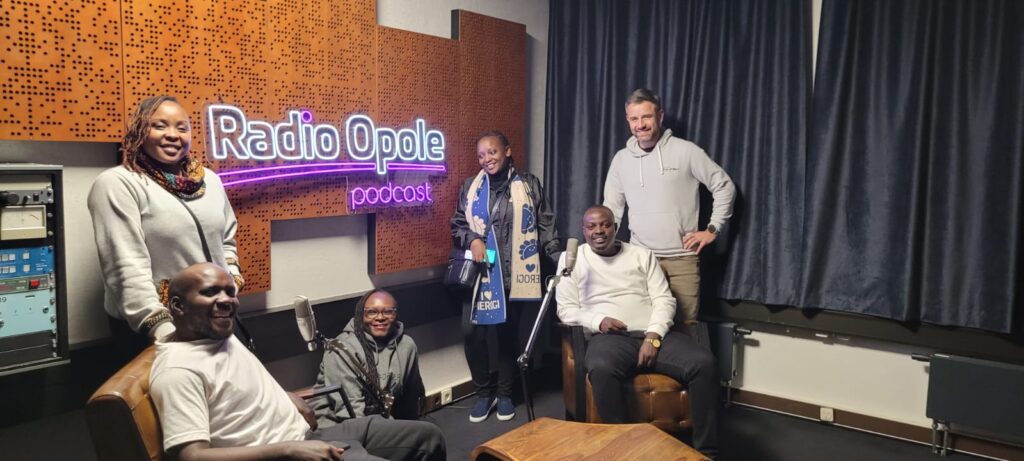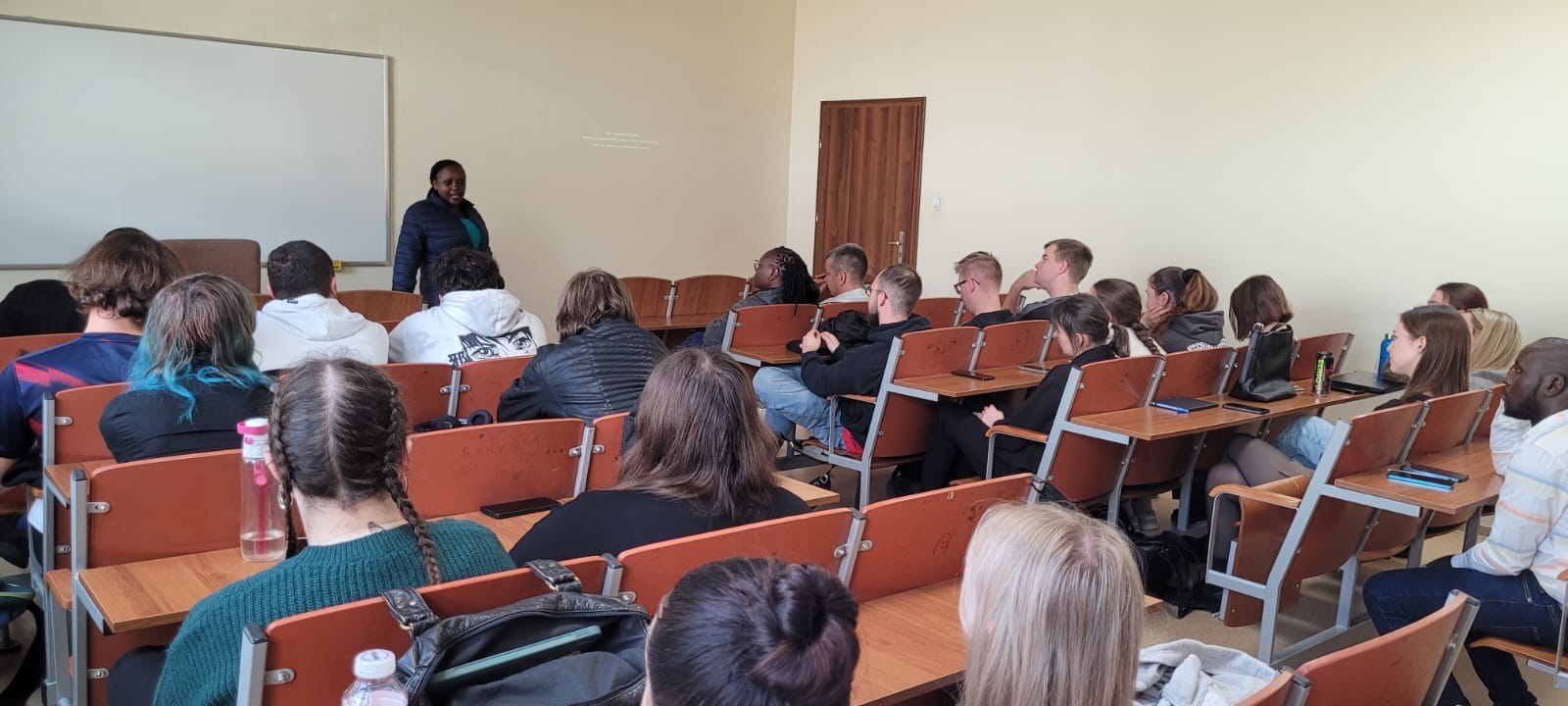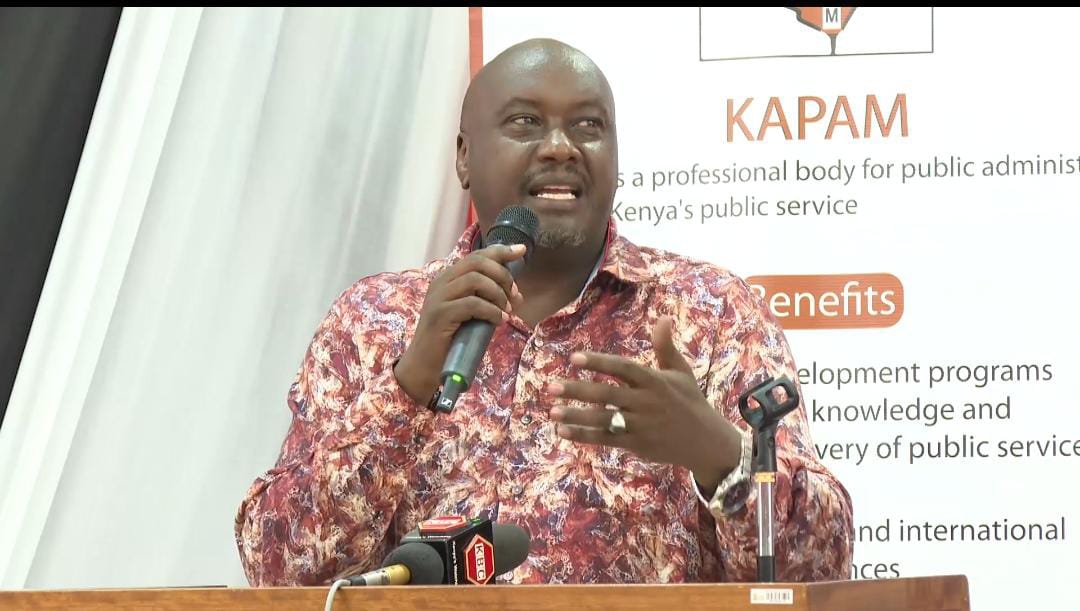Ruth Keah, a multi-award-winning journalist from Kenya, addressing journalism students at Opole University, Poland. Photo by Kui Mugweru,
As the world increasingly embraces digital tools, including Artificial Intelligence (AI), experts in the field of journalism remain optimistic about its future.
While AI technologies like apps and tools are reshaping how content is created, Prof. Adam Drosik a senior lecturer at the Journalism School at Opole University believes AI will not replace journalists anytime soon.
“AI will not take over the work of journalists because journalism isn’t just about writing,” he explained. “It involves conducting research and verifying facts before writing the story.”
Prof. Adam Drosik, who has over 20 years of experience teaching at Opole University, emphasized the importance of cultivating creativity in journalism students. He said his institution uses hands-on assignments to discourage students from fully relying on AI for their work.
“This approach ensures that students become more innovative and learn to develop original ideas instead of depending on AI to think for them. Relying too much on AI is risky as it stifles creativity,” he warned.
His sentiments were echoed by Patrycja Hejdak, a PhD student at the university who highlighted the limits of AI in journalism.
“AI cannot replace fieldwork. Journalists must go to the ground to gather stories—a task that AI cannot perform,” she said, reassuring skeptics that journalism as a profession is not under threat from AI.
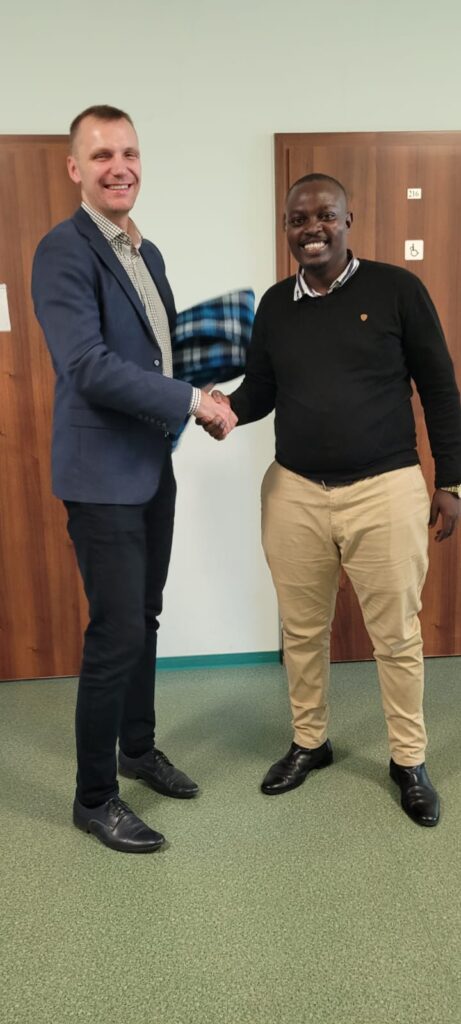
These insights come at a time when journalists in Kenya and Poland are urging their peers, especially students, to embrace digital technology as a way to thrive in the industry.
During a recent exchange program under the Transcontinental Dialogues: Poland in Kenyan Media Spaces project—led by The HumanDoc Foundation and the Association of Grassroot Journalists Kenya (AGJK) and funded by the Polish Ministry of Foreign Affairs—Kenyan journalists toured leading media houses and Opole university in Poland.
Speaking to journalism students at Opole University, Bosco Kathima, AGJK’s Programs Manager, encouraged the students to explore digital platforms to create job opportunities. Whilst appreciating the diverse cultures between Kenya and Poland, Bosco discussed the interesting similarities in the media landscape between the two countries, most importantly the media ethics and challenges the media and journalists experience in both countries.
Kui Mugweru, a vernacular radio presenter from R FM, shared similar advice, highlighting how digital platforms like podcasts have empowered journalists since the COVID-19 pandemic.
“Podcasts are a game-changer,” she said. “With basic equipment’s, you can create content, air it, and generate income”
My advice to you is to explore these platforms, create content that you can present effectively, and turn it into a source of income”, she said.
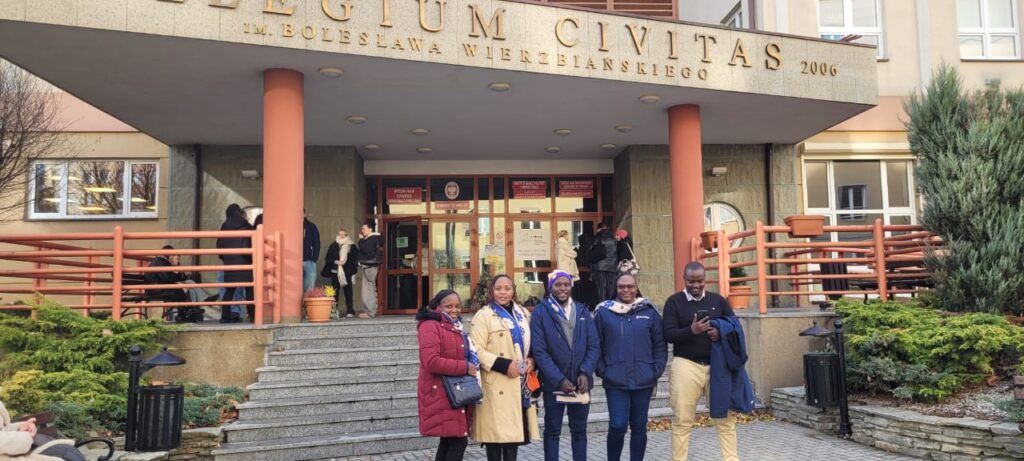
How COVID-19 Redefined Journalism
The COVID-19 pandemic profoundly impacted the media industry worldwide, leading to job losses and changes in operational dynamics.
Edyta Bryła, a journalist with over 12 years of experience at Agora Media, one of Poland’s largest media companies, revealed how the pandemic forced their newsroom to downsize.
“We used to operate on two floors, but now it’s down to one. Many journalists were laid off, while others work remotely,” she said.
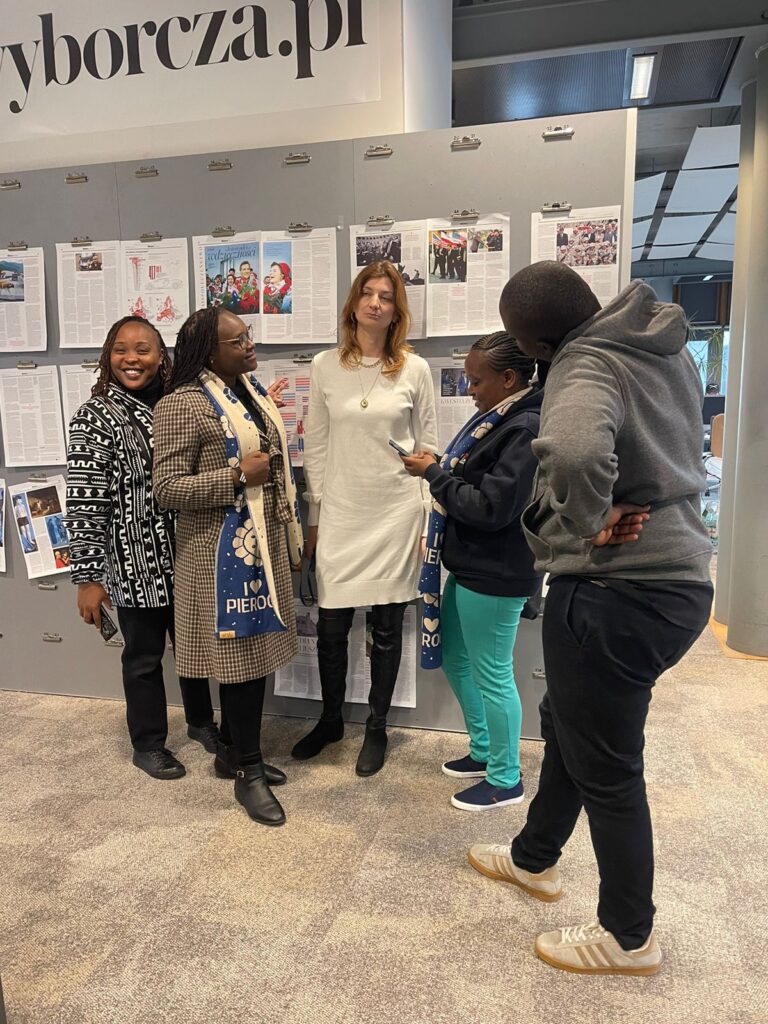
However, the challenges of the pandemic also sparked creativity. Bryła highlighted how two colleagues who turned adversity into opportunity by launching successful online radio stations.
“These stations are now competing with traditional media houses and attracting substantial advertising revenue,” she noted.
As the media landscape evolves, experts agree that while AI and digital platforms are transformative, they are not a replacement for human ingenuity and skill. Instead, these tools should be seen as an opportunity to innovate and adapt.
“By embracing technology and maintaining the core values of journalism—research, storytelling, and fact-checking—the profession is poised to thrive in a digital age”,Prof Adam Drosik Concluded.
